Description
ABSTRACT
A Review of the Doctrine for Insurable Interest under the Marine Insurance Act in Nigeria
Oyeniyi Ajigboye*
As a result of the uncertainties faced at sea by sailors, the importance and relevance of marine insurance policies to all actors in the maritime industry across the globe cannot be overemphasised. This is timelessly true and there may never come a time that there will be certainty, at least that there will be no peril at the sea. The story of the ill-fated Titanic a vessel which its builders may have concluded that even the gods cannot sink is an age long example. Marine insurance will continue to provide a leverage and backup for international investors. The assurance of indemnity makes international trade worth the risk and provides an encouragement for trade and finance. It is in view of the current developments in other jurisdictions that this paper examines the doctrine of insurable interest under the Marine Insurance Act in Nigeria. The concept implies that a policy holder or the beneficiary must stand to suffer a direct financial loss in an event that the uncertain event insured against, occurs. The paper identifies relevant changes in the law in England, Australia and South Africa and concludes that the doctrine of insurable interest has developed into a potent clog in the wheel of marine insurance development in Nigeria. It therefore advocates that the doctrine be jettisoned so as to revamp marine insurance business in Nigeria.
INTRODUCTION
According to Ndikom, the maritime industry occupies a very prominent position in the economies of nations all over the world.1 This is because the industry in its strict sense embraces all business activities which takes place within the maritime environment.2 Diverse categories of persons, companies, and multinationals are involved in the maritime activities such as international transportation of finished products, crude oil, petroleum products, liquefied petroleum gas, liquefied natural gas and chemicals which generates income and boosts the nation’s economy. These maritime businesses and transactions require huge capital with great commercial value thus, the value of a cargo at any point in time can indeed be properly described as a fortune. This is simply understandable mainly because one will consider the cost of building a ship, and the chains of interests connected to such vessel in monetary terms. The different categories of entities and persons involved in the maritime businesses and activities also have varying interests such as legal interest, equitable interest, and or economic interests. Interest which may be economic, equitable, legal, partial or full in a vessel is the basis for the establishment of marine insurance. The subject matter of any marine insurance policy therefore, is ensuring indemnity. Generally, it is this interest that propels the need to ensure the safety of cargoes at sea. This is also true for ship owner(s), crew members, owners of cargo, financiers, the insurance industry, maritime sector and the nation at large.
Given the economic impact of the maritime industry in a nation, the capital involved, and the financial risks, it is highly desirable that every sea voyage is insured against the occurrence of an unfortunate incident or peril at sea. Anticipated risks are, therefore, insured on or before the commencement of a voyage by a way of marine insurance with a view to ensure indemnity in case
* LL.B (Hons.), B.L., LL.M (Ibadan), ACIArb. Lecturer, Faculty of Law, Adekunle Ajasin University, Akungba-Akoko
- Ndikom BC, The Kernel Concept of Shipping Operations, Policies and Strategies (Ibadan University Printer, Ibadan 2011)
- ibid

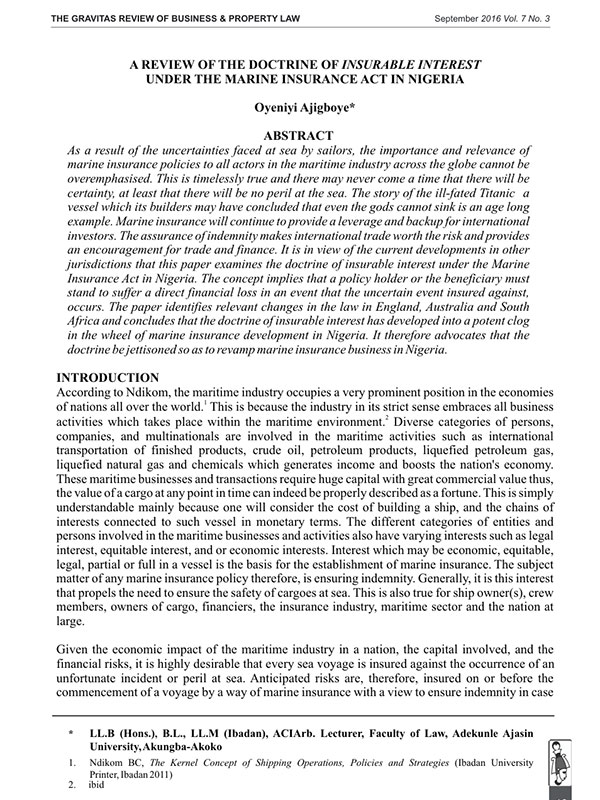
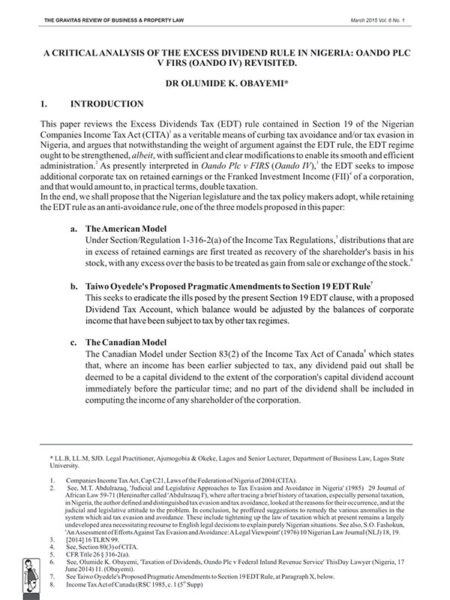
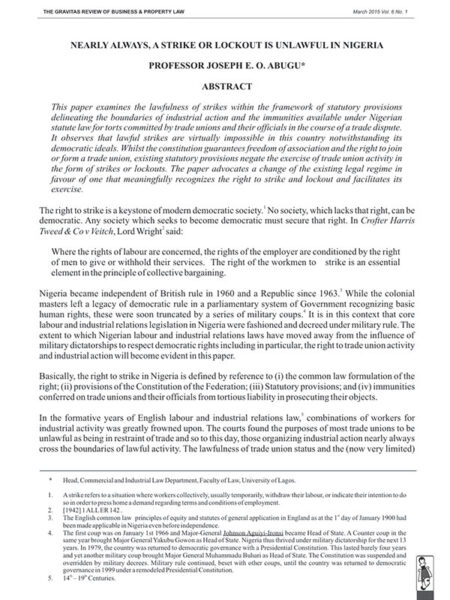
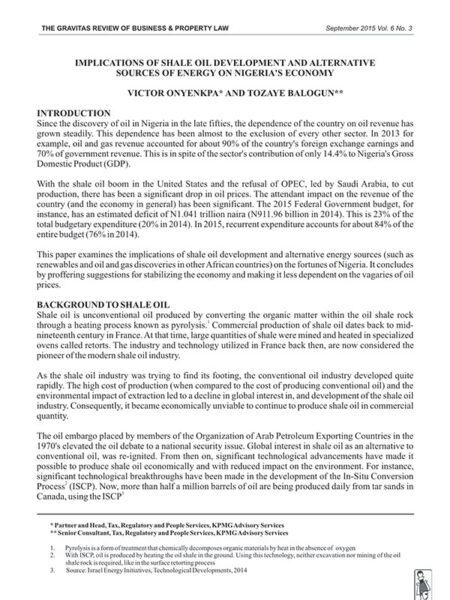
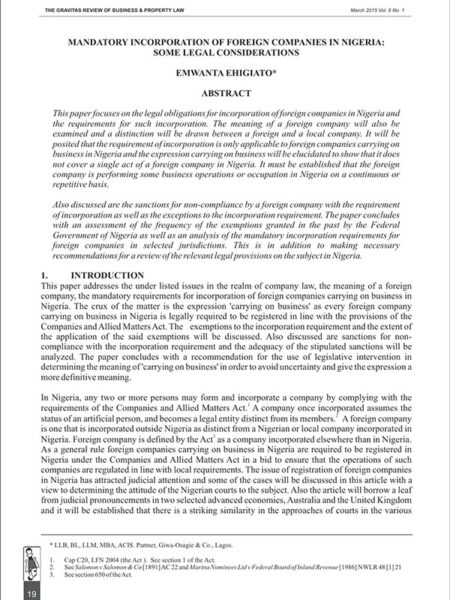


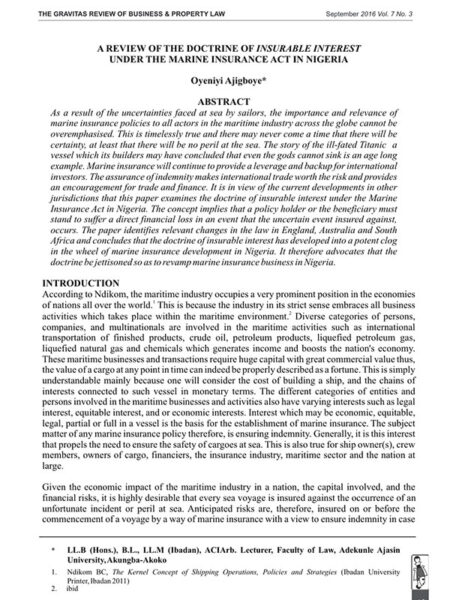
Reviews
There are no reviews yet.